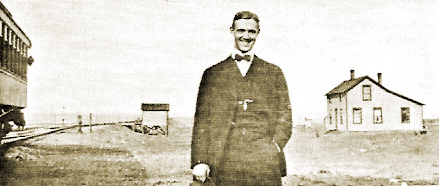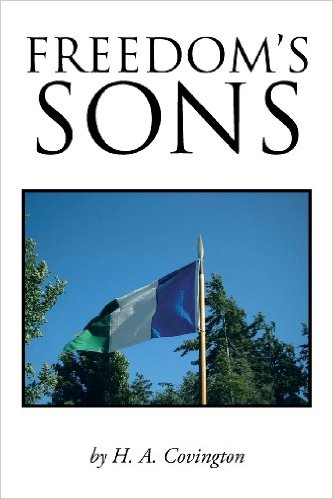Julian presiding at a conference of Sectarians
(Edward Armitage, 1875)
I have but one clear memory of Bishop Eusebius. It was the afternoon he decided to drill me himself in the life of the Nazarene. For hours we sat in a side chapel of the cathedral at Nicomedia while he questioned me. I was bored. The Bishop had a talent for explaining only those things one already knew, leaving mysterious those things one would like to have known. He was a heavy, pale old man, slow of speech and much too easy to follow. Simply for diversion, I stared at the ceiling, which was vaulted and divided into four sections, each dedicated to one of the seasons. In the most brilliant mosaic, flowers and vines, birds and fishes were all intertwined.
I knew that ceiling by heart for Gallus and I prayed three times a day in this particular chapel, and during those tedious prayers I used to imagine that I had the power to rise straight up in the air and enter that world of peacocks and palm trees and grape arbours, a gleaming world of gold where there was no sound but that of running water and birds singing —certainly no sermons, no prayers! A few years ago when Nicomedia was shattered by earthquake, my first question concerned the cathedral: did it still stand? Yes, I was told, but the roof had fallen in. And so my childhood’s magic retreat is now rubble.
I must have been staring too obviously at the ceiling, for the Bishop suddenly asked me, “What is the most important of our Lord’s teachings?”
Without thinking, I said, “Thou shalt not kill.” I then rapidly quoted every relevant text from the new testament (much of which I knew by heart) and all that I could remember from the old. The Bishop had not expected this response. But he nodded appreciatively. “You have quoted well. But why do you think this commandment the most important?”
“Because had it been obeyed my father would be alive.” I startled myself with the quickness of my own retort.
The Bishop’s pale face was even ashier than usual. “Why do you say this?”
“Because it’s true. The Emperor killed my father. Everybody knows that. And I suppose he shall kill Gallus and me, too, when he gets around to it.” Boldness, once begun, is hard to check.
“The Emperor is a holy man,” said the Bishop severely. “All the world admires his piety, his war against heresy, his support of the true faith.”
This made me even more reckless. “Then if he is such a good Christian how could he kill so many members of his own family? After all, isn’t it written in Matthew and again in Luke that…”
“You little fool!” The Bishop was furious. “Who has been telling you these things? Mardonius?”
I had sense enough to protect my tutor. “No, Bishop. But people talk about everything in front of us. I suppose they think we don’t understand. Anyway it’s all true, isn’t it?”
The Bishop had regained his composure. His answer was slow and grim. “All that you need to know is that your cousin, the Emperor, is a devout and good man, and never forget that you are at his mercy.” The Bishop then made me recite for four hours, as punishment for impudence. But the lesson I learned was not the one intended. All that I understood was that Constantius was a devout Christian.
Yet he had killed his own flesh and blood. Therefore, if he could be both a good Christian and a murderer, then there was something wrong with his religion. Needless to say, I no longer blame Constantius’s faith for his misdeeds, any more than Hellenism should be held responsible for my shortcomings! Yet for a child this sort of harsh contradiction is disturbing, and not easily forgotten.
In the year 340 Eusebius was made bishop of Constantinople. As a result, Gallus and I divided our time between Nicomedia and the capital. Of the two, I preferred Constantinople.
Founded the year before I was born, Constantinople has no past; only a noisy present and a splendid future, if the auguries are to be believed. Constantine deliberately chose ancient Byzantium to be the capital of the Roman Empire, and then he created a new city in place of the old, and named the result—with characteristic modesty—after himself.
Like most children of the city I delight in its vitality and raw newness. The air is always full of dust and the smell of mortar. The streets are loud with hammering. This confusion should be unpleasant, but it is invigorating. From day to day the city changes. Nearly all the familiar sights of my youth have been replaced by new buildings, new streets, new vistas, and I find it a marvellous thing to be—if only in this—at the beginning of something great rather than at the end.
In good weather, Mardonius used to take Gallus and me on walks around the city. “Statue hunts” we called them, because Mardonius was passionately interested in works of art and he would drag us from one end of the city to the other to look for them. I think we must have seen all ten thousand of the bronze and marble statues Constantine had stolen from every part of the world to decorate his city. Though one cannot approve his thefts (particularly those from Hellenic temples), the result has been that in and around the various arcades along Middle Street, the city’s main thoroughfare, there are more important works of art than anywhere on earth, excepting Rome.
One of our expeditions took us to a Galilean charnel house, close by the Hippodrome. While Mardonius fussed with a map of the city, trying to get his bearings, Gallus and I threw bits of marble at a half-finished house across the street. There are always a satisfying number of things for a child to throw in the streets of Constantinople, chips of marble, splinters of wood, broken tile. The builders never clean up.
“Now here,” said Mardonius, peering closely at the map, “should be the famous Nemesis of Pheidias acquired some years ago by the divine Constantine, and thought to be the original, though there are those who maintain it is a copy, but a copy made in the same century, in Parian marble, hence not Roman, hence not corrupt.”
Suddenly the door to the charnel house was flung open and two old men ran out into the street, closely pursued by a dozen monks, armed with sticks. The old men got as far as the arcade where we were standing. Then the monks caught them, threw them to the ground and beat them, shouting all the while, “Heretic! Heretic!”
I turned with amazement to Mardonius. “Why are they hurting those men?”
Mardonius sighed. “Because they are heretics.”
“Dirty Athanasians?” Gallus, older than I, was already acquainted with most of our new world’s superstitions.
“I’m afraid so. We’d better go.”
But I was curious. I wanted to know what an Athanasian was.
“Misguided fools who believe that Jesus and God are exactly the same…
“When everybody knows they are only similar,” said Gallus.
“Exactly. As Bishop Arius—who was so much admired by your cousin the divine Emperor—taught us.”
“They poisoned Bishop Arius,” said Gallus, already fiercely partisan. He picked up a rock. “Murdering heretics!” he yelled and hurled the stone with unfortunate accuracy at one of the old men. The monks paused in their congenial work to praise Gallus’s marksmanship. Mardonius was furious, but only on grounds of rectitude.
“Gallus!” He gave my brother a good shake. “You are a prince, not a street brawler!” Grabbing us each firmly by an arm, Mardonius hurried us away. Needless to say, I was fascinated by all this.
“But surely those old men are harmless.”
“Harmless? They murdered Bishop Arius.” Gallus’s eyes shone with righteousness.
“Those two? They actually murdered him?”
“No,” said Mardonius. “But they are followers of Bishop Athanasius…”
“The worst heretic that ever lived!” Gallus was always ecstatic when his own need for violence coincided with what others believed to be right action.
“And it is thought that Athanasius ordered Arius poisoned at a church council, some seven years ago. As a result, Athanasius was sent into exile by your divine uncle. And now, Julian, I must remind you for what is the hundredth—or is it the thousandth? time, not to bite your nails.”
I stopped biting my nails, a habit which I have not entirely broken myself of even today. “But aren’t they all Christians?” I asked. “Don’t they believe in Jesus and the gospels?”
“No!” said Gallus.
“Yes,” said Mardonius. “They are Christians, too. But they are in error.”
Even as a child I had a reasonably logical mind. “But if they are Christians, like us, then we must not fight them but turn the other cheek, and certainly nobody must kill anybody, because Jesus tells us that…”
“I’m afraid it is not as simple as all that,” said Mardonius. But of course it was. Even a child could see the division between what the Galileans say they believe and what, in fact, they do believe, as demonstrated by their actions. A religion of brotherhood and mildness which daily murders those who disagree with its doctrines can only be thought hypocrite, or worse.
Now for the purposes of my memoir it would be convenient to say that at this moment I ceased to be a Galilean. But unfortunately that would not be true. Though I was puzzled by what I had seen, I still believed, and my liberation from the Nazarene was a long time coming. But looking back, I suspect that the first chain was struck from my mind that day in the street when I saw two harmless old men set upon by monks.


